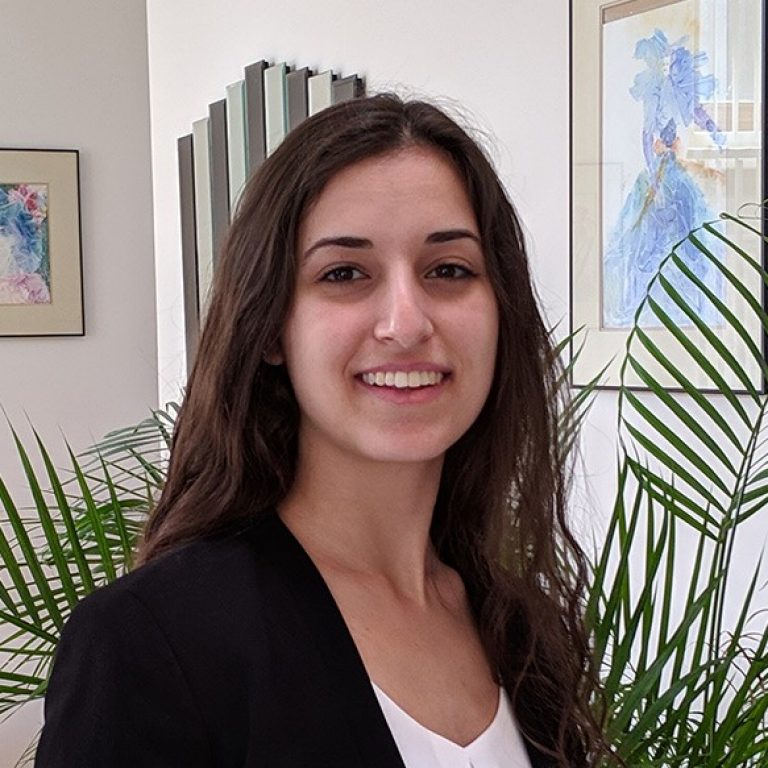Christina Aladas
Bachelor of Science
Specialization in Mathematical and Computational Finance
Learning programming to understand advanced finance concepts
The Mathematical and Computational Finance program combines all the components needed to understand how financial markets work
From statistics to coding, Christina Aladas found the skills she learned complemented each other perfectly as she progressed in her program.
What drew you to Mathematical and Computational Finance?
I’ve always loved math. It was my best subject among my STEM (science, technology, engineering and mathematics) classes in Cegep. So when I was browsing university programs, I was looking for something that had both math and finance and I came across mathematical and computational finance.
It’s focused on math, probability and statistics and you also do a bit of programming, combining the three things I wanted to do. Concordia was the only school where I found this type of program.
What is it about finance that interests you?
I find money interesting. My dad would watch the markets and discuss his own investments with me. I liked the concept of managing assets and being able to make a profit.
You can’t do advanced finance without having the mathematical background because it involves complicated derivations of formulas. The Mathematical and Computational Finance program exposes you to both fields.

And you knew this would be a degree you could put to direct use when you finish?
Exactly. It’s specialized and lets you get really good at specific things. For example, I learned how to create and run Black-Scholes models, which means I can determine the fair price for specific financial vehicles using computer programming. I also used coding to write mathematical equations for pricing in my finance classes. It’s all linked and I love that.
What would people find surprising about studying mathematical and computational finance?
When I first looked at the list of required courses, I only noticed one programming class. But ultimately I was surprised by how many advanced statistics and optional classes use programming.
So when you take that one required programming class, you have a base — solid knowledge of how to tackle different problems — and then you end up applying your knowledge continuously in the courses you take afterwards.
Who would be perfect for this program?
It’s ideal for people who have a good work ethic and love math and statistics. Also, if you have an interest in financial markets, the economy or in anything finance-related, then it’s a great program to be in. It really does combine those two worlds and you get more in-depth knowledge about both while using programming to apply what you’ve learned.


